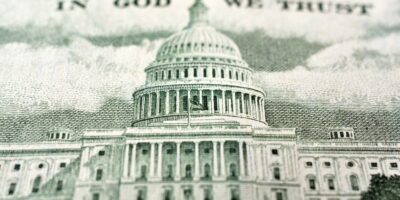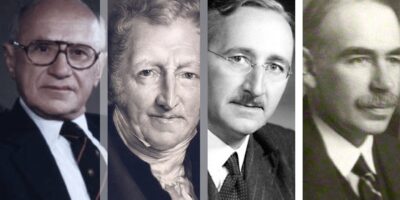A Case for Corruption

There is a really interesting question in the political economy of development: Is corruption bad?
The name itself suggests the answer is “yes,” of course, since corruption means the perversion or decay of one thing into something worse. But is corruption always bad?
As I recently pointed out, Gordon Tullock argued that the answer should be “yes, but not always.” That is, corruption is bad, but it may be the best you can do in some circumstances. As Tullock put it, corruption can sometimes “work out quite well” in countries with inefficient and ineffective institutions.
Suppose you live in a country with nationalized communications companies, indifferent and intermittent service, and extremely slow maintenance and repair responses. But you have an idea that is likely to produce tens of millions of sales, and quickly. If the system is bad, but scrupulously honest, your product or service is likely to die a-borning, because the infrastructure just won’t work. If, on the other hand, the system is bad, but corrupt, you can make a phone call.
Entrepreneur: “Hello, I need fast internet service, without interruptions, and with immediate responses to service calls.”
Cable/Internet company: “Ah, well, we all want things we can’t have. We can install your new equipment (checks calendar) in 11 months. Maybe a little more. And even then we don’t guarantee uninterrupted service.”
E: “Actually, I was hoping to have it sooner. Tomorrow in fact. But I understand that the standard package is not really suited for me. I was thinking that perhaps there are some fees that I haven’t paid yet. I’d be happy to pay a $10, 000 fee upfront, and then an extra $2,500 per month for the service I’m asking for.”
CIC: “But of course. Let me put you through to my boss. What time tomorrow would you like to schedule the service? I’ll send our best technicians, we can definitely take care of you.”
There are two things that are really interesting about this process. First, this is the “Coase Theorem” at work. Corruption provides a vector for market efficiency incentives to be smuggled into socialist systems and “public” companies that normally are insulated from prices and incentives. Second, though corruption “works out rather well” for systems with bad institutions, once corruption is established the bad institutions are “locked in” and are very difficult to get rid of.
The Political Coase Theorem
The essence of the “Coase Theorem” is that the assignment of property rights doesn’t matter much for the efficiency of the system, because market exchanges will redirect resources toward higher-valued uses. You will not use a resource someone else values more, because you are better off selling that product or resource to the other person. (As I pointed out at AIER a few weeks ago, the same logic can work in environmental economics, or in that case wolves.)
That’s because market systems are based on disagreement. That gets lost in a lot of economics classes, because on the blackboard there are no people, only prices. And if everyone agrees on a price, we have an “equilibrium.” In fact, in real exchanges, every agreement on price necessarily reflects a disagreement about value. If A has a widget, and values it at $5, and B values widgets at $10, then A can sell the widget to B. Let’s say they agree on a price of $7.50; that’s only possible because A values the widget at $5 and B values it at $10. The price of $7.50 means that A is better off with the money, and B is better off with the widget, and so they exchange.
Now consider a corrupt socialist system, with state ownership of services and utilities. Who should get good service? Everyone would like good service, mind you, but some people value it more than others. The scarcity created by inefficiency, laziness, and corruption means most people will get terrible service. But those who can afford to pay can get excellent service. Who can afford to pay? It could just be the rich, who are insulated from some of the inconvenience of socialism by being able to “jump the queue.” But creative and dynamic entrepreneurs are also able to generate cash flow, and so pay bribes to speed things up.
T.S. Aidt has called this the “greaser” hypothesis, meaning that corruption can actually “grease the wheels” of inefficient systems and make them more efficient. Variations in speed and quality of service are matched, if imperfectly, to the value users place on the service, something like in a price system.
Stuck in Bad Systems
On the other hand, corruption can be locked in by these same factors. Tullock (1996) lays out the problem:
[T]he problem of corruption is real, and it is connected with rent seeking…. Comments by 19th century businessmen, missionaries, and others visiting China contain continuous complaints about corruption [saying] that the officials actually write laws with the intent of being bribed to permit people to avoid carrying out the law. This is rent-seeking.
Consider an official in Fukien, a number of whose citizens illegally go to the Indies to work and then return with considerable money. The official could set up a program under which going to the Indies is illegal and then be prepared to accept bribes when those going illegally return. He would have to set the bribes so that people would still have an incentive to go to the Indies to work even though he would be “taxing” them. His calculation would be equivalent to that of a merchant who knows that raising the price on a product lowers the number of units sold.
[E]vidence suggests that officials tended to draw a large part of their personal income from bribes…Indeed, it is almost certain that once a government structure has been set up so various people make profits, changing the structure in such a way to shrink the profits will be extremely hard, regardless of whether the profits are legal or not. Firing civil servants may be even harder than firing college professors. (Tullock, 1996; pp. 6-7).
This, of course, is T.S. Aidt’s “sander” hypothesis, meaning that corrupt systems throw sand in the gears of progress and dynamic adjustment. The salaries of many government officials are negative, because inspectors and installers “buy” their jobs as if they were franchises. An inspector is buying the right to extort bribes from builders; installers and service technicians are buying the right to make potential customers bid against each other.
The real problem is that the scarcity that was once the result of (relatively) benign laziness and inefficiency now becomes an essential part of the system. Bureaucrats and government officials look for new ways to hold up delivery and approval processes. As Heckelman and Powell (2010) show, the growth benefits of corruption disappear exactly as institutions improve.
But Gordon Tullock had recognized this problem just from a theoretical perspective, just by realizing that the dynamic consequences of giving officials incentives to set up rent-seeking contests are so pernicious. As Tullock put it:
The argument against rent-seeking turns out also to be an argument against political corruption. Suppose you are in a society which has an exchange control system and it is possible to buy foreign currency by bribing an official in the exchange control office…Traditionally, economists have tended to view this kind of bribery as in itself desirable, because it gets around undesirable regulation. However, it leads to rent-seeking. In this case the rent-seeking does not come from the users of the permits but from the competition to get into the position where you can receive the bribe. Throughout the underdeveloped world, large numbers of people take fairly elaborate educational programs which have no real practical value for their future life and engage in long periods of complicated political maneuvering in hope that they will be appointed, let us say, a customs inspector in Bombay…(Tullock, 1991; p. 148).
Corruption is just congealed rent-seeking. We don’t always recognize that. And there is clearly a “political Coase theorem.” The problem is that in the political world transaction costs aren’t obstacles to be removed, but are rather income-producing assets, ticket windows where bribes can be collected. Still, Coase was right to focus on transaction costs as being a key variable.










